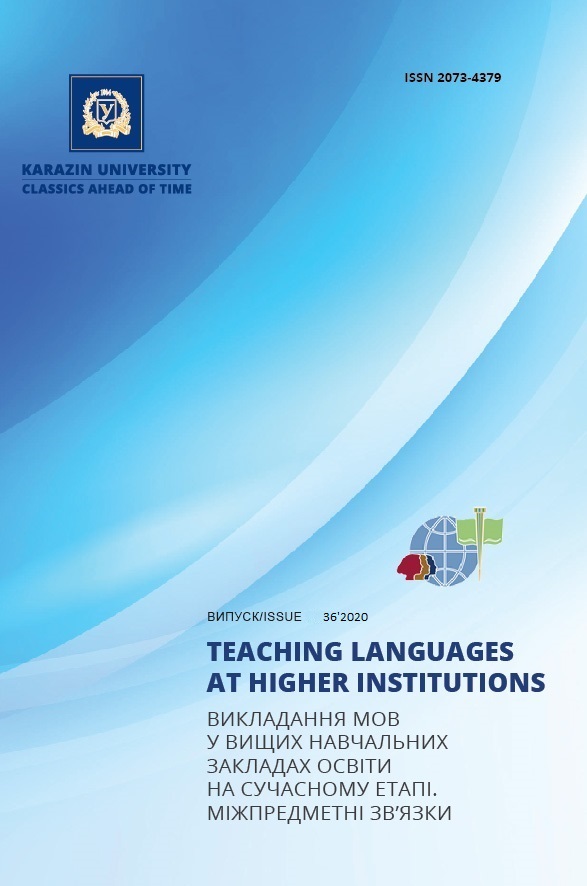Iнсайтне навчання як форма розвитку дослiдницької здатності студентів
Анотація
Стаття пропонує теоретичне обґрунтування для методичного прийому продуктивного навчання магістрантів швидкого вирішення дослідницьких проблем у період підготовки і написання дипломної роботи. Розглядаючи здатність до дослідження як якість студента і умову успішного досягнення наукової мети і ґрунтуючись на практичному досвіді, автор уважає необхідним розвиток і використання когнітивних здібностей. Формування у студента творчого підходу до науково-пошукової роботи пов’язане з активізацією інтелектуального потенціалу, шляхом спрямованості діяльності викладача на самоорганізацію свідомості студента, під якою ми розуміємо мимовільне впорядкування хаотично переміжних ідей у результаті попередньої «готовності» до цього, зумовленої в основному установкою викладача, або через стан налаштованості на виконання підспудно присутнього у свідомості интенцiонального акта. Мікропростір самоорганізації, тобто когнітивна здатність і навколишнє середовище, є, на наш погляд, умовою для мимовільного, раптового знаходження рішення дослідницької проблеми і породження власної ідеї. Це і є описуване в статті навчання шляхом інсайту (осяяння). Теорія інсайту сходить до гештальтпсихології і грунтується на вивченні психіки людини як особливого роду структури і функціональної системи, а сам інсайт трактується як феномен у вирішенні проблеми. Інсайтне навчання в нашому випадку представлено як метод і форма розвитку дослідницької здатності, когнітивний, непередбачуваний акт отримання швидкого результату в процесі вирішення проблемної ситуації, однак, інтенціонально присутній у свідомості у вигляді програми на пошук «відсутньої ланки» в уявленні проблеми в цілому. Здатність до інсайту в освітньому процесі актуалізується за допомогою маніпулювання свідомістю студентів, що супроводжується ключовими конструктами.
Завантаження
Посилання
Duncker, K. (1965). Kachestvennoe (jeksperimentalnoe i teoreticheskoe) issledovanie produktivnogo myshlenija [A qualitative (experimental and theoretical) study of productive thinking]. Psihologija myshlenija [The psychology of thinking]. Matjushkina, A.M. (Ed.). Moscow: Progress, pp. 21–85 [in Russian].
Duncker, K. (1965). Psihologija produktivnogo (tvorcheskogo) myshlenija [The psychology of productive (creative) thinking]. Psihologija myshlenija [The psychology of thinking]. Matjushkina, A.M. (Ed.). Moscow: Progress, pp. 174–186 [in Russian].
Karmin, A.S. (2003). Kulturologija [Culturology]. Saint Petersburg: Izd-vo “Lan” [in Russian].
Karmin, A.S. (2007). Tipologija intuicii [Typology of intuition]. Ananevskie chtenija – 2007: Materialy nauch.-prakt. konf. “Ananevskie chtenija 2007” [Ananyev readings 2007: materials of scientific-applied conference “Ananyev readings 2007”]. Cvetkovoj, L.A. (Ed.). Saint Petersburg: Izd-vo S.-Peterburgskogo un-ta, pp. 25–27 [in Russian].
Karpenko, L.A. (Comp.) (1985). Kratkij psihologicheskij slovar [A concise psychological dictionary]. Petrovskij, A.V. and Jaroshevskij, M.G. (Eds.). Moscow: Politizdat [in Russian].
Meshherjakova, B.G. and Zinchenko, V.P. (Eds.). (2009). Bolshoj psihologicheskij slovar [The great psychological dictionary]. Moscow: AST, Prajm-Evroznak [in Russian].
Mweru, M. (2011). Human learning. Catherine Murungi (Ed.). Kenyatta Univ. Press [in English].
Osnovnye napravlenija psihologii v klassicheskih trudah. Geshtalt-psihologija [Main schools of psychology in the classic works]. Köhler, W. Issledovanie intellekta chelovekoobraznyh obezjan [The mentality of apes]. Koffka, K. Osnovy psihicheskogo razvitija [Fundamentals of mental development]. (1998). Moscow: OOO “Izd-vo AST-LTD” [in Russian].
Ponomarev, Ja.A. (1976). Psihologija tvorchestva [The psychology of creation]. Moscow: Nauka [in Russian].
Savenkov, A.I. (2016). Pedagogika. Issledovatelskij podhod [The pedagogy. A research approach]. Moscow: Izd-vo Jurajt, Part 1 [in Russian].
Wertheimer, M. (1987). Produktivnoe myshlenie [Productive thinking]. Gorbova, S.F. and Zinchenko, V.P. (Eds.). Moscow: Progress [in Russian].
Zinchenko, V.P. (2010). Soznanie i tvorcheskij akt [Consciousness and the creative act]. Moscow: Jazyki slavjanskih kultur [in Russian].

